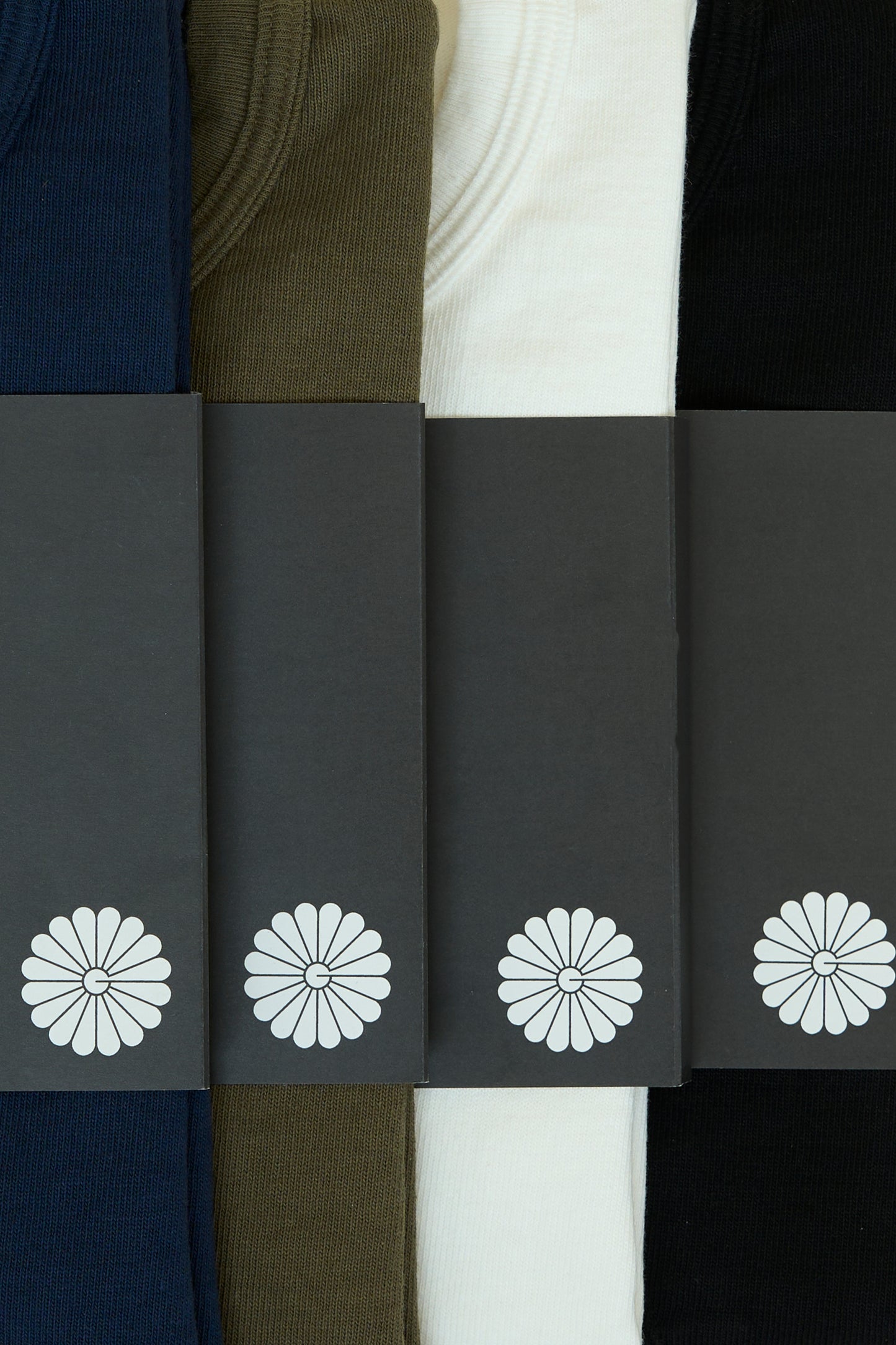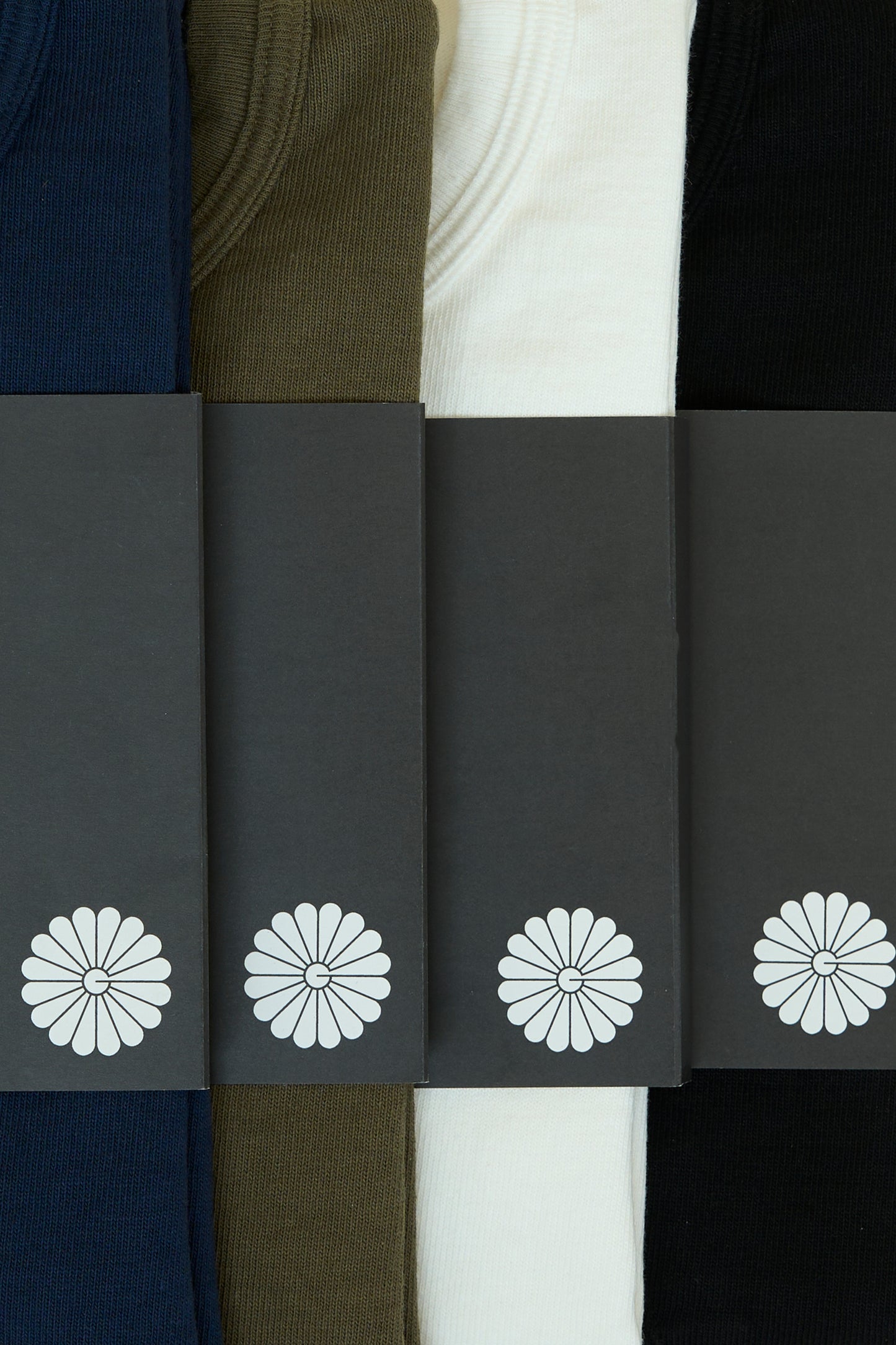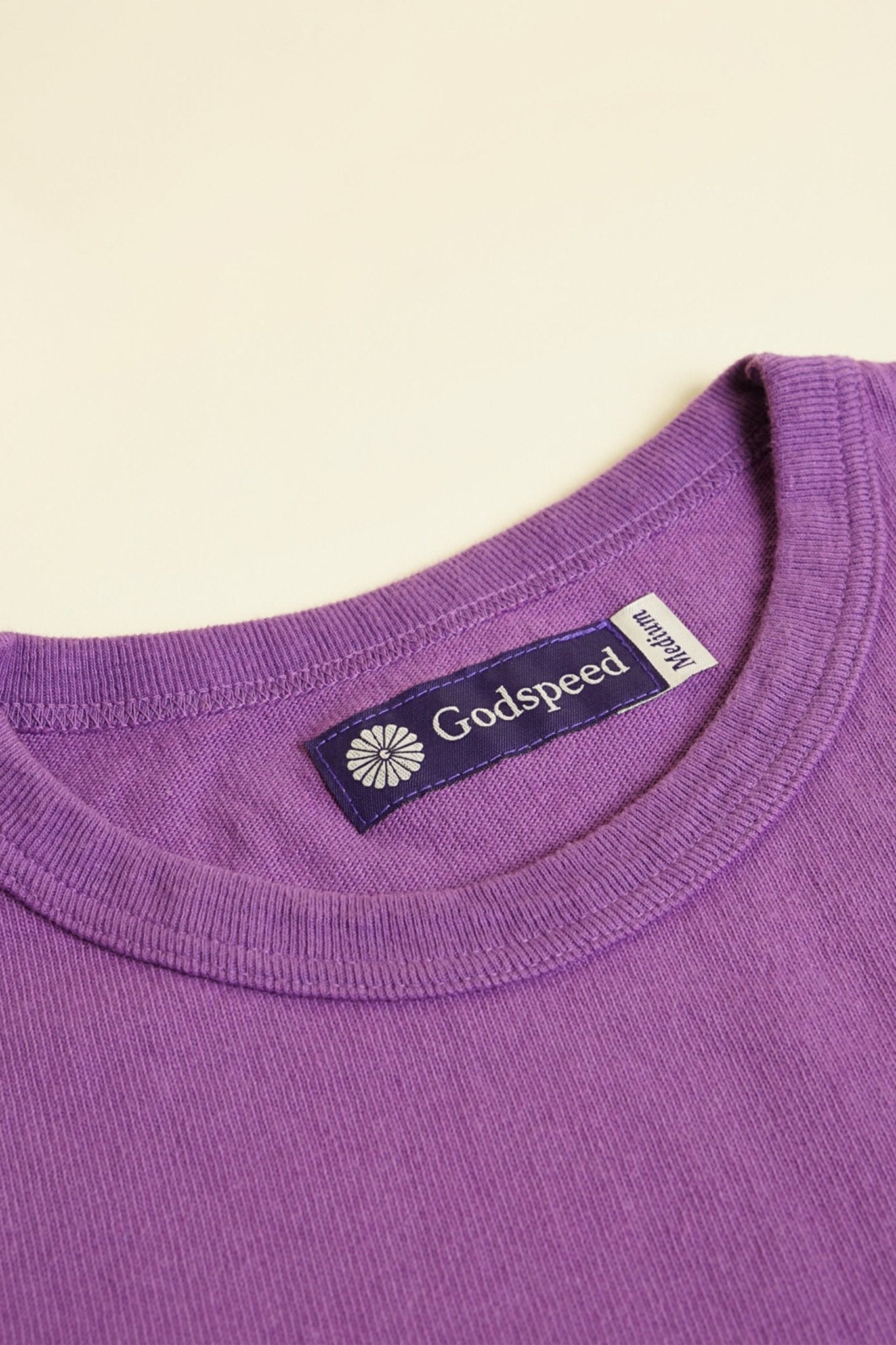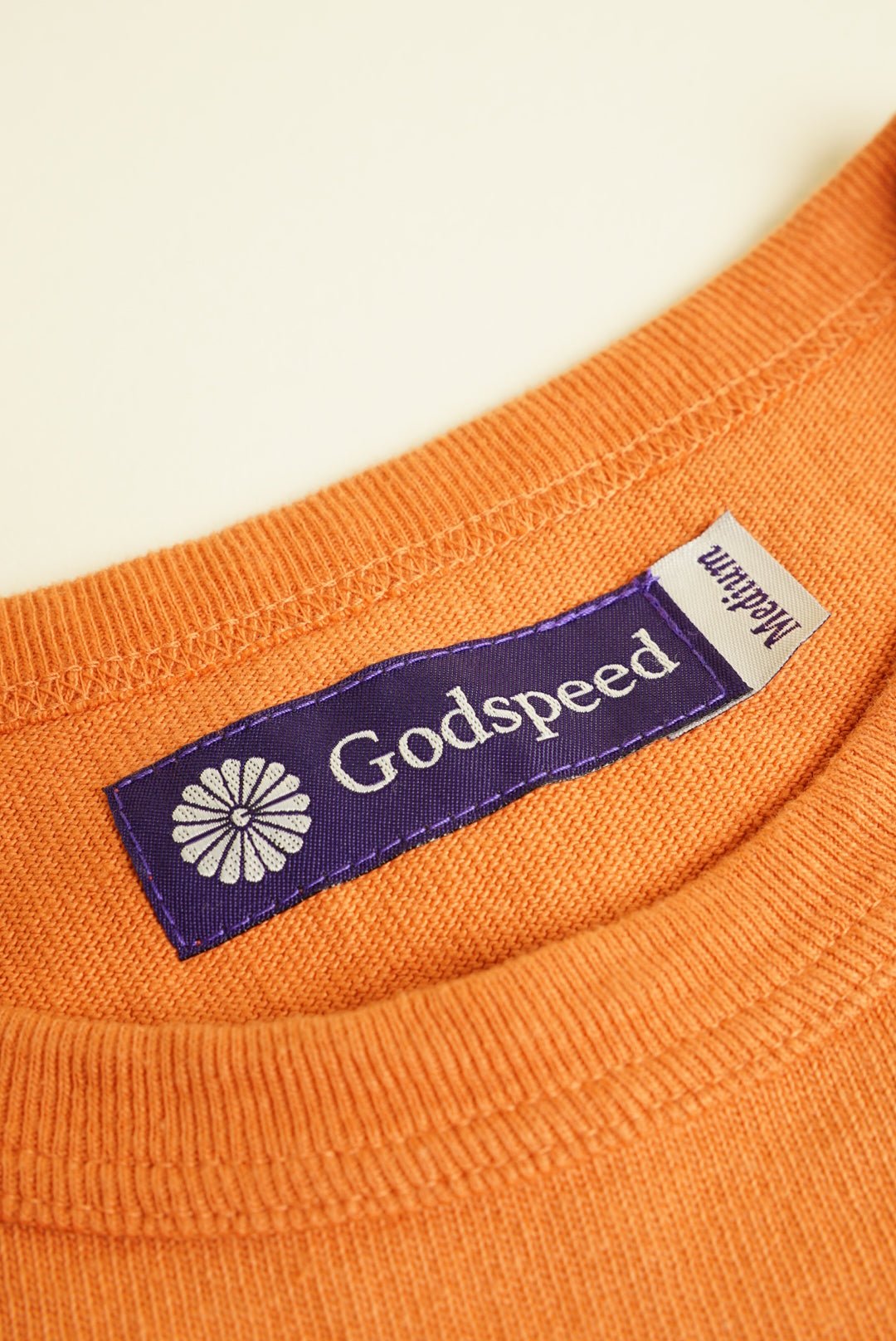




Unravelling the legacy of Loopwheel T-Shirts.
Loopwheel t-shirts are not just garments; they are a testament to the rich history of loopwheel machines and the meticulous processes that go into creating each individual masterpiece. In this post we will dive into the origins of loopwheel machines and their evolution in Japan and we will explore some of the key features that make our favourite loopwheel shirt, the Godspeed Heavyweight Tsuriami 10oz Tshirt, reign supreme as the ultimate t-shirt.


Similarly with denim, Loopwheel machines were originally designed and patented by a French engineer named Joseph-Marie Jacquard in 1801. Jacquard's invention revolutionized the textile industry by automating the process of creating intricate patterns in fabric using a series of punched cards. These cards controlled the weaving of the fabric and allowed for the production of complex designs without the need for manual labor.
Loopwheel machines were further developed and industrialised in 19th-century Germany, where textile engineering flourished. The machines were designed to produce knitted fabric in a unique circular motion, creating a tubular body that had a comfortable, natural stretch to the fabric and was uniquely breathable. As is often the case with iconic brands (think Levi Strauss, Porsche, Leica etc) German craftsmanship laid the foundation for the superior quality and comfort that loopwheel t-shirts are renowned for today.


After World War II, Germany faced economic challenges and the production of loopwheel machines declined. During this time, Japan recognized the value of these machines for their unique knitting capabilities and their ability to produce high-quality fabric with superior comfort. Japan began importing second-hand loopwheel machines from Germany to incorporate into their textile industry both for commercial benefit and to preserve the heritage of the unique machines and craftsmanship in and of itself.


The imported loopwheel machines were lovingly restored and maintained by skilled Japanese artisans with the restoration requiring significant expertise and dedication. By preserving and using these machines, Japan ensured the continuation of the loopwheel knitting tradition, even as it became scarce in its countries of origin Japanese textile engineers and manufacturers continued to innovate and improve upon the technology, developing their own variations of circular knitting machines the tsuriami loopwheel machines.
In Japanese, "tsuri-ami" (釣編み) refers to a knitting technique known as "English rib" in English which is a variation of the traditional rib stitch used in knitting.
With tsuriami each knit stitch is elongated by pulling the working yarn, creating a raised effect and a more pronounced texture than regular ribbing. This gives the fabric a plush, bouncy, and distinctive appearance.

As a result of Japan's commitment to preserving and advancing the loopwheel knitting technology, the country became synonymous with the production of premium-quality loopwheel fabrics which are highly sought after for their comfort, durability, and timeless style.
Today, Japanese loopwheel machines are considered the best in the world so it comes as no suprise that access to the machines is very limited and highly sort-after.
Unlike modern knitting machines that can produce fabric at much faster rates, loopwheel machines work at an extremely slow pace with the knitting process alone taking more than an hour to produce enough fabric for a single t-shirt.
While the slow production speed may seem inefficient from a purely manufacturing perspective, it is this meticulous and deliberate process that contributes to the exceptional quality, comfort, and durability of loopwheel fabric. The resulting fabric is densely knitted, incredibly soft, and has a unique texture that sets it apart from mass-produced fabrics.
The slow and sustainable production process also aligns with the values of ethical and responsible fashion, making loopwheel t-shirts a preferred choice for customers who prioritise both craftsmanship and ethics.

At URAHARA the Godspeed Heavyweight Tsuriami 10oz Tshirt reigns supreme as the brand's loopwheel t-shirts are crafted with utmost care and attention to detail using premium organic cotton, eco-friendly dyes, recycled materials and sustainable packaging. By employing traditional techniques and modern sustainability innovations, Godspeed aim's to reduce the ecological footprint of manufacturing high quality garments, making a positive impact on both style and conscience.


Shop Loopwheeled T-Shirts from Godspeed:
Featuring classic Black and Natural with optional patch chest pocket, and the colours of the season; Orange and Purple.
Godspeed Heavyweight Loopwheel 10oz T-Shirt - Natural
Share






Godspeed Heavyweight Loopwheel 10oz T-Shirt - Black








Godspeed Heavyweight Tsuriami 10oz Loopwheel T-Shirt - Purple







Godspeed Heavyweight Tsuriami 10oz Loopwheel T-Shirt - Orange







head back to the urahara journal for the latest
Join our Mailing List
Stay connected with us on the latest deliveries, news & events.




